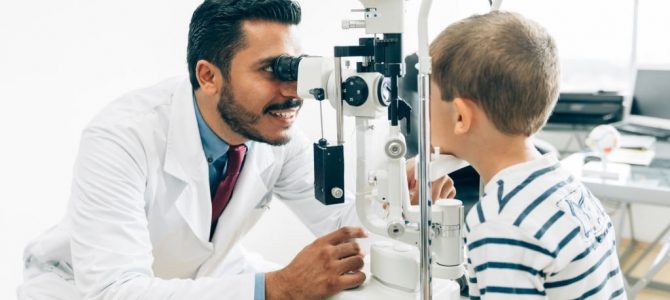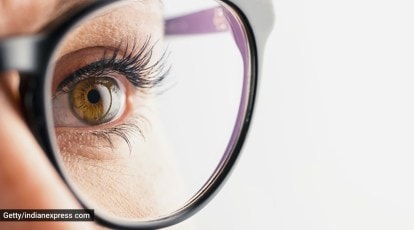Leading Cardiologist Andalusia: Your Companion in Heart Health
Wiki Article
Is Refractive Surgical Procedure Right for You? Elements to Think About for Better Eyecare
In the world of eye treatment, the decision to undergo refractive surgical procedure is a significant one that requires thoughtful factor to consider. As people seek clearness and liberty from the restraints of corrective lenses, various variables come into play when determining the viability of such a procedure. From the details of one's eye health and wellness to the complexities of daily routines and personal expectations, each facet holds value in the broader landscape of refractive surgical treatment candidateship. By evaluating these crucial elements with care and precision, a more clear course towards informed decision-making arises.Eye Health And Wellness Assessment
When taking into consideration refractive surgical treatment, a thorough eye wellness assessment is important to evaluate the viability of the procedure for every person. andalusia pediatrics. This analysis involves a collection of tests and evaluations carried out by an eye treatment specialist to identify the overall wellness of the eyes, the presence of any kind of hidden problems, and the stability of the refractive errorDuring the analysis, numerous aspects are thought about, such as the client's case history, present eye prescription, corneal density, pupil dimension, and tear film high quality. These assessments assist to identify any contraindications to refractive surgery, such as corneal problems, cataracts, or without treatment eye infections. Furthermore, the assessment assists to manage patient expectations relating to the prospective outcomes of the surgical procedure based upon their unique eye features.
Ultimately, the eye wellness evaluation is essential in guaranteeing the security and effectiveness of refractive surgical procedure, as it gives beneficial insights right into the individual's eye wellness standing and helps establish the most suitable treatment alternatives for accomplishing ideal aesthetic outcomes. (andalusia pediatrics)
Lifestyle Assessment
A comprehensive lifestyle analysis is indispensable in figuring out the viability of refractive surgery for a person's visual adjustment needs. Way of life elements such as profession, hobbies, and day-to-day tasks play an essential role in the decision-making process regarding refractive surgery. As an example, people with careers that include a high degree of physical activity or exposure to ecological elements may have various aesthetic requirements contrasted to those with inactive desk work. Understanding how an individual's lifestyle may impact their vision post-surgery is essential for managing assumptions and making sure optimal end results.Moreover, way of living behaviors such as sports participation, outside activities, or also skincare routines can affect the recovery process and total success of refractive surgical treatment. By performing a detailed way of life analysis, eye treatment specialists can tailor their suggestions and treatment plans to satisfy the unique requirements of each client, eventually leading to improved aesthetic outcomes and complete satisfaction.
Assumption Alignment

Establishing reasonable expectations includes thorough pre-operative discussions between the ophthalmologist and the individual. The surgeon must transparently communicate the prospective dangers, advantages, and restrictions of the procedure (andalusia pediatrics). Clients require to understand that while several individuals achieve 20/20 vision or far better following refractive surgery, some might still need glasses for sure activities like analysis or driving at evening. Taking care of these expectations assists prevent dissatisfaction and discontentment post-surgery, resulting in a much more positive overall experience for the individual.
Threat Analysis

Factors that may enhance the risk of issues include age, specific medical conditions like autoimmune illness, unpredictable vision prescription, slim corneas, and unrealistic individual assumptions. In addition, choosing a knowledgeable and skilled doctor, adhering to pre and post-operative care directions faithfully, and revealing any kind of pertinent case history can assist alleviate threats.
To decrease the possibility of difficulties, eye doctors conduct extensive pre-operative assessments to determine any kind of contraindications to surgical procedure. They additionally discuss the potential threats and benefits with clients throughout the consultation procedure. By taking part in open communication and shared decision-making, both the ophthalmologist and the individual can collaborate to determine if refractive surgical treatment is the right option based upon specific danger profiles and wanted results.
Consultation Value
Considering the critical duty of informed decision-making in analyzing dangers and prospective difficulties in refractive surgical procedure, the examination procedure holds significant significance in directing individuals towards ideal results. Throughout the consultation, the ophthalmologist examines the patient's eye wellness, refractive errors, and general viability for surgery. This preliminary analysis is vital in identifying the most appropriate procedure for every person, thinking about factors such as corneal thickness, pupil dimension, and existing eye problems.Moreover, the examination acts as an opportunity for clients to discuss their assumptions, problems, and any concerns they might have concerning the surgery. Clear interaction between the specialist and the person is vital to make certain practical expectations and an extensive understanding of the possible threats and benefits entailed.
these details Additionally, the consultation permits the cosmetic surgeon to discuss the different surgical choices offered, their particular end results, and the post-operative treatment needed. This detailed conversation equips clients to make well-informed decisions about their eye treatment, bring about much better satisfaction and results post-surgery.
Verdict
In final thought, individuals considering refractive surgical treatment should undertake a detailed eye health assessment, examine their lifestyle practices, align their expectations with possible results, evaluate the involved dangers, and prioritize examinations with eye care professionals. These aspects play a critical function in identifying the suitability of refractive surgical treatment for every individual, ensuring ideal results and satisfaction with the procedure.Patients considering refractive surgery frequently have high assumptions pertaining to the results, anticipating perfect vision without the requirement for glasses or hop over to these guys call lenses. While refractive surgical treatment can greatly enhance vision and minimize dependence on visual help, it is crucial for people to recognize that results might vary based on specific factors such as the degree of refractive error, corneal thickness, and overall eye wellness.
By engaging in open communication and shared decision-making, both the ophthalmologist and the client can function with each other to figure out if refractive surgery is the appropriate selection based on individual danger profiles and preferred results.
Thinking about the crucial duty of informed decision-making in assessing dangers and possible issues in refractive surgery, the consultation procedure holds considerable value in assisting individuals in the direction of optimum end results. Throughout the examination, the eye doctor reviews the client's eye health and wellness, refractive mistakes, and total suitability for surgical treatment.
Report this wiki page